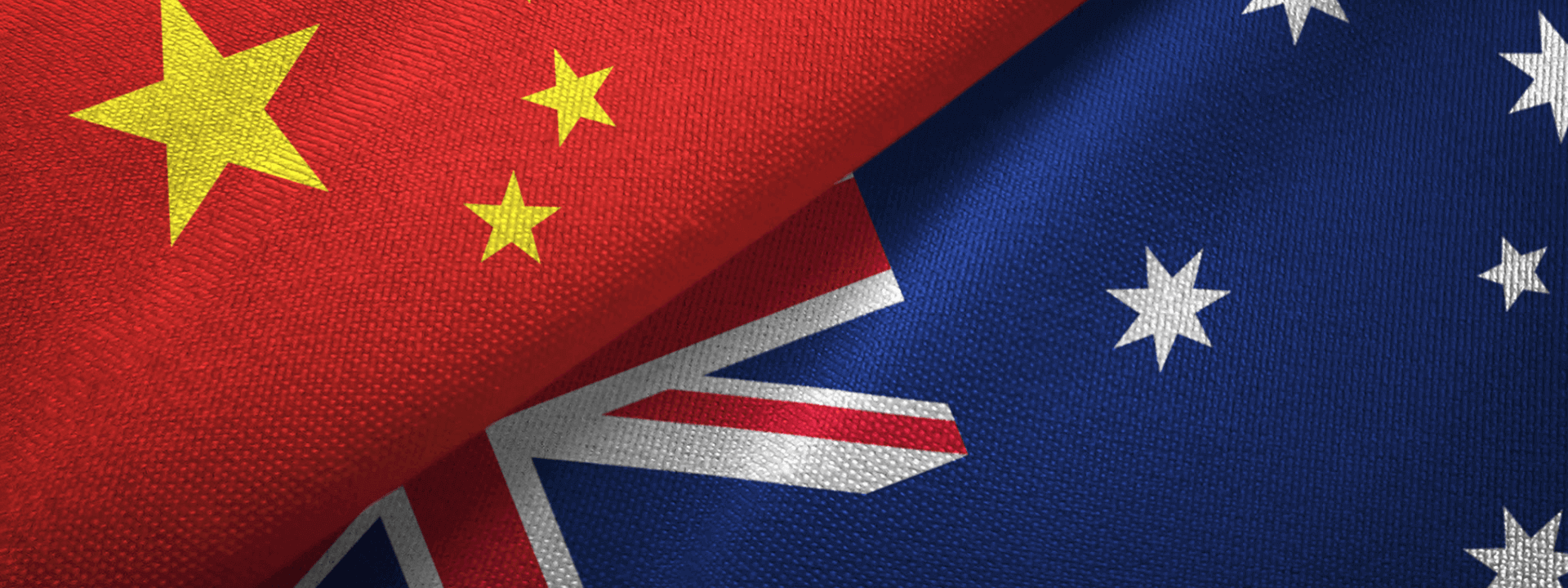China and Australia Resume Trade Talks in Sign of Stabilizing Ties
By Kelly Wang


China and Australia’s top trade officials agreed to resume high-level economic dialogue channels in a sign of steadily improving relations between Beijing and Canberra under the Albanese government.
On Friday, trade ministers from both countries held their first in-person meeting since 2019 during Australian Trade Minister Don Farrell’s 3-day visit to China last week. Both sides agreed to support business-level collaboration in digital trade and e-commerce industries as well as cooperation in green and low-carbon economy, according to a Saturday statement from the Chinese Ministry of Commerce.
“China is willing to work with Australia to expand the areas of cooperation,” Commerce Minister Wang Wentao said while urging Australia to provide “a good business environment and treat Chinese enterprises and products fairly and justly.”
Wang’s comments were made at Friday’s 16th China-Australia Joint Ministerial Economic Commission meeting, nearly six years after the last commission held in Beijing in 2017. The two sides also agreed to “step up dialogue,” including convening the China-Australia Free Trade Agreement Joint Commission, according to an Australian trade ministry statement. Farrell’s trip came as Canberra sought to unwind trade barriers with its largest trading partner after the two countries’ relations soured following disputes over trade and Covid-19 origin three years ago.
“I will be advocating strongly for the full resumption of unimpeded Australian exports to China — for all sectors,” Farrell said prior to his departure in a statement from the Australian trade ministry. He also mentioned that the trip is aimed to “work through a successful pathway for the resolution of all of our outstanding trade differences” upon arriving in Beijing Thursday night.
In May 2021, China suspended “indefinitely” all activities under the China-Australia Strategic Economic Dialogue, which was the main bilateral economic forum between the two countries formed in 2014, in retaliation against then Australian prime minister’s decision to cancel agreements between the Belt and Road Initiative and the Victoria state government.
China-Australia relations began to thaw since the election of Australian Prime Minister Anthony Albanese’s Labor government last May, with top officials from both sides meeting for the first time in years. President Xi Jinping met with Albanese at the Group of 20 summit in Bali in November, and Australian Foreign Minister Penny Wong met with China’s top diplomat Wang Yi during a trip to Beijing in December.
Since both trade officials agreed to enhance dialogue and trade during a virtual meeting in February, the two countries have resumed trade in coal, cotton and copper and Beijing agreed to undertake an expedited review to possibly scrap its anti-dumping and anti-subsidy tariffs on Australian barley.
In 2022, trade between China and Australia declined by 3.9% year-on-year to $220.9 billion, customs data showed. China exports mainly electronics and clothing products to Australia and imports metals and agricultural products from the Oceania nation.
Read also the original story.
caixinglobal.com is the English-language online news portal of Chinese financial and business news media group Caixin. Global Neighbours is authorized to reprint this article.
Image: Oleksii – stock.adobe.com
